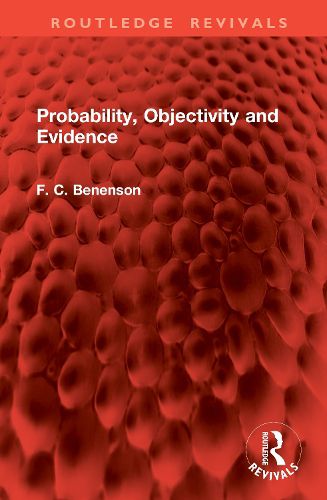Readings Newsletter
Become a Readings Member to make your shopping experience even easier.
Sign in or sign up for free!
You’re not far away from qualifying for FREE standard shipping within Australia
You’ve qualified for FREE standard shipping within Australia
The cart is loading…






First published in 1984, in Probability, Objectivity and Evidence the author claims that the theory of probability provides a single, correct, analysis of probability and that the concept of probability employed in science can best be understood as that of inductive probability; to do so, it is necessary to show both how the logical relation theory of probability can be given a formulation sufficiently objective for the purposes of science, and how other attempts to explain the objective character of probability judgements are unsatisfactory.
These and related questions occupy the first five chapters of the book. The last two chapters contain more or less independent material on the principle of indifference. The author argues that in essence, the logical relation theory alone can explain how we have objective knowledge of probabilities, and so it alone provides a viable system translation of the concept of probability used in science. This is a must read for students of logic and philosophy.
$9.00 standard shipping within Australia
FREE standard shipping within Australia for orders over $100.00
Express & International shipping calculated at checkout
Stock availability can be subject to change without notice. We recommend calling the shop or contacting our online team to check availability of low stock items. Please see our Shopping Online page for more details.
First published in 1984, in Probability, Objectivity and Evidence the author claims that the theory of probability provides a single, correct, analysis of probability and that the concept of probability employed in science can best be understood as that of inductive probability; to do so, it is necessary to show both how the logical relation theory of probability can be given a formulation sufficiently objective for the purposes of science, and how other attempts to explain the objective character of probability judgements are unsatisfactory.
These and related questions occupy the first five chapters of the book. The last two chapters contain more or less independent material on the principle of indifference. The author argues that in essence, the logical relation theory alone can explain how we have objective knowledge of probabilities, and so it alone provides a viable system translation of the concept of probability used in science. This is a must read for students of logic and philosophy.